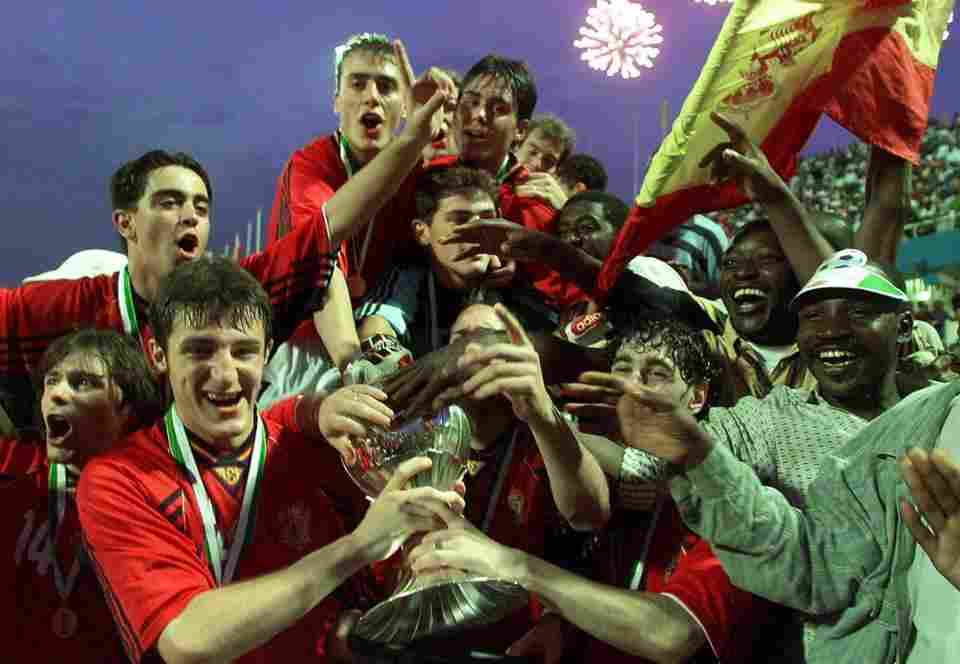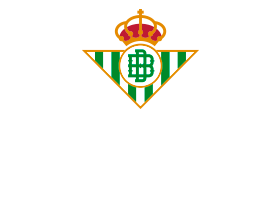
HISTORY / Fernando Varela’s World Cup
It’s been 20 years since Spain won the U20 World Cup, where the Betis Academy player had an outstanding role
By Manolo Rodríguez
20 years ago, one of the greatest success in Spanish football happened. A championship that came on Saturday the 24th of April of 1999, when the national team became World champions in the U20 category thanks to a fantastic generation of players with some important names in football history, such as Iker Casillas and Xavi Hernández. Two players who have been in the news recently. The goalkeeper, for the heart attack he suffered but happily overcame in port, and the midfielder because he just announced he is retiring from active football.
Alongside them, there were other great players such as Carlos Marchena, Gabri García, Pablo Orbáiz, Daniel Aranzubia or Fran Yeste. And, with them, a young Real Betis player was the undisputable right back of that team. Fernando Valera, who had made his debut with the first team two years earlier against Valencia, when he was still a Betis B footballer.
Varela, born in Dos Hermanas on the 1st of September of 1979, was a powerful right winger who could also act in defence on that side. He had become U18 champion of Spain the year before, was still a few months short of turning 20 when the World Cup arrived and was already regarded as one of the most promising prospects of the Green and White Academy for the years to come, thing that actually happened.
That World Cup was played in Nigeria and the debut of the Spanish side, managed by coach Iñaki Sáez, took place on the 5th pf April of 1999 in the city of Calabar. The Spaniards beat Brazil 2-0, a team with names that later would become well-known, such as Ronaldinho, Juan or Matuzalem. It was the first match of the group stage and Gabri scored both goals.
A 0-0 draw with Zambia would follow and the last game was a victory 3-1 over Honduras, with goals by Pablo Couñago, Rubén Suárez and Fernando Varela himself. Spain qualified for the Last 16 as group champions.
The next rival was United States, a team with top players in their squad, such as Carlos Bocanegra or Tim Howard. The first half was extraordinary and Spain went into the break leading 3-0, two goals from Couñago and one from Xavi. The Americans reacted in the second half and the final score was 3-2.
From that moment, Spain began to be seen as one of the favourites. Their rivals in the quarter-finals were Ghana, a team that beaten Argentina and Kazakhstan in the group stage and eliminated Costa Rica in the Last 16.
Spain took the lead through a penalty scored by Barkero, but the Africans tied in the 90th minute through Ofori Quaye. The extra time did not bring any news and it all went down to the penalty shootout. 18 shots were necessary to get a winner. The last penalty was scored by Varela and, immediately after, Casillas stopped the shot that qualified Spain for the semi-finals.
The second to last step was against another African side: the best team Mali ever had. With players like Mamadou Diarrá, Seydou Keita or Ibrahima Bakayoko, it was the rival nobody wanted.
They had dominated the group stage against Portugal and Uruguay, teams full of illustrious names like Simao, Caneira, Hugo Leal, Forlán or Diego Pérez; and had easily beaten Cameroon and the hosts, Nigeria, in the Last 16 and quarter-finals, respectively.
Spain, dressed in white, performed superbly and was winning 2-0 at half time, with a brace scored by Varela. The first came just after the start after an assist from Barkero, and the second in the 25th minute after a play from Gabri. He showed up on the right wing both times to finish two counterattacks. He even scored a third goal, disallowed for offside.
In the second half, Dissa cut the lead but Xavi finished it in the 90th minute. Spain was in the final.
The final was played on the 24th of April of 1999 at Surelere Stadium in Lagos. The national team dressed again in white and, as it has happened in the previous matches, the controlled the game from the start. This time against Japan and the final score was an overwhelming 4-0, with two goals by Couñago, one from Gabri and another one from Barkero.
The match was conducted by Argentinian referee Ángel Osvaldo Sánchez and these were the line-ups:
Spain: Aranzubía, Coira, Jusué, Marchena, Bermudo, Varela (Rubén Suárez 62'), Xavi, Orbáiz, Barkero (David Aganzo 79'), Gabri (Colsa 70'), Pablo Couñago.
Japan: Minami, Tsujimoto, Teshima, Nakata, Sakai, Ujie (Inamoto 46'), Endo, Ogasawara, Motoyama, Nagai (Takada 68'), Takahara (Bando 55').
The media back then stated that, if the Olympic champions in Barcelona 92 (Guardiola, Kiko, Luis Enrique, Alfonso) had been nicknamed the 'Cobi Generation', the U20 World Cup champions in Nigeria should be named the 'Pelopo Generation'. Who was "Pelopo"? Well, Xavi Hernández, the MVP of the tournament, who had received such nickname from his teammate at Barça B Miguel Ángel (years later Real Betis player) because "he had a weird hairdo" (pelo meaning hair in Spanish).
It was the first time a Spanish team win the World Cup and all the credit went to the lads and the national coach, Iñaki Sáez.
Fernando Varela, with his gold medal on, returned to Seville on Monday the 26th of April of 1999. Happy and satisfied, he told that they had gone through some hard moments in Nigeria "because we've stayed in some hotels with awful conditions", and expressed his desire that this achievement would open the doors of the first team for him.
However, he had to wait to the beginning of the 2000/01 season. He was loaned out in the 99/00 to Extremadura, in Second Division, but returned as first team member for the following year.
From that moment, he got his place in the starting eleven and had the honour of becoming Copa del Rey champion in 2005. Apart from that, he also produced that astonishing goal against Barcelona in Huelva. That formidable 80-metre run, with five great dribbles over rival players and that shot to the top-left corner to beat Víctor Valdés.
He wore the Green and White shirt for 7 seasons. He was part of a brilliant Academy generation that left a print on the team at the beginning of the 21st Century and, above all, he will be remembered as the first World Champion Betis ever had.
A success that just turned 20 years old.





